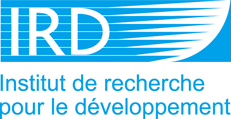Hélène Broutin
Hélène Broutin, PhD, received a Master of Parasitology from the Universities of Lille and Montpellier in 2000 and a PhD in Epidemiology from the University of Montpellier, in 2004. She spent 6 years (2000-2005) at the IRD (French Institute of Research for the Developing countries) in Montpellier, working on the eco-epidemiology of vaccine-preventable diseases. Her research thesis focused on the comparative study of spatial and temporal dynamics of pertussis and measles in different settings and on the impact of vaccination. She investigated the periodicity, the persistence and the spread of these diseases in relation with population parameters and vaccination. In particular, she showed the routes of transmission of pertussis and measles at a local scale, in Niakhar, a small community in rural Senegal. She started in 2007 a post-doctoral position at Fogarty International Center of the US National Institutes of Health in the Division of International Epidemiology and Population Studies, which conducts research in epidemiology and mathematical modeling of infectious diseases. Her research still concerns pertussis dynamics comparative approach. She mainly focuses on the seasonality, multi-annual periodicity and age-structure of cases of pertussis in different countries. She is also conducting a project, of model development to estimate the global burden of pertussis, in collaboration with the ‘Department of Immunization, Vaccines & Biologicals’ of WHO. Recently, her research has also included an other vaccine-preventable disease, the meningococcal meningitis. She studies the spatio-temporal dynamics of the disease in 3 countries located within the African Belt. The goal of this research is to identify the parameters (population, environment, genetics etc …) that drive the epidemic emergence at the local scale in order to better anticipate the epidemics and thus to improve the current reactive vaccination strategy. This project is conducting in close collaboration with the ‘Epidemic and Pandemic Alert and Response’ Department of WHO.
Meningitis in the African Belt: Impact of Climate? Perhaps but not only!
Meningococcal Meningitis (MM) is a major public health problem in the "Meningitis Belt", a Sub-Saharan Africa region extending from Senegal to Ethiopia. Large epidemics occur in this region every 5 to 8 years and annual outbreaks occur locally during the dry season. Nevertheless, the drivers of local outbreaks emergence are still poorly understood, limiting the efficacy of the current reactive vaccination strategy. The main goal today in meningitis research in Africa is to improve the current vaccination strategy through a better anticipation of epidemics onset at a local scale. A better understanding of the local conditions that will lead the epidemics emergence is thus crucial. Climate has been suggested to be correlated to Meningitis dynamics and the role of humidity, rainfall, aerosols concentration is under investigation. Although climatic factors are widely believed to play a role in meningitis seasonality, we need to focus also on the potential role of human density and movement.
Here, the first step consists in a better understanding of the spatial and temporal dynamics of MM at a local scale. We explored the MM dynamics at the district level in 3 countries within the "Belt" (Mali, Niger, Burkina Faso) to identify high risk areas. We performed cluster analysis to differentiate the epidemiological patterns of the disease between districts and proposed a new epidemic definition to compare patterns in Epidemic and non-epidemics years. We obtained spatially coherent groups and identified specific parameters that could be used in the current surveillance system. Another study has investigated the absence and presence of MM cases in relation with population size in Niger. Our analysis shows that spatial patterns of meningitis absences and reintroductions are more highly clustered in regions along primary roads and migration corridors, suggesting that population density also contributes to the spatiotemporal spread of meningitis.
If you wish to contact Hélène Broutin, please click here




